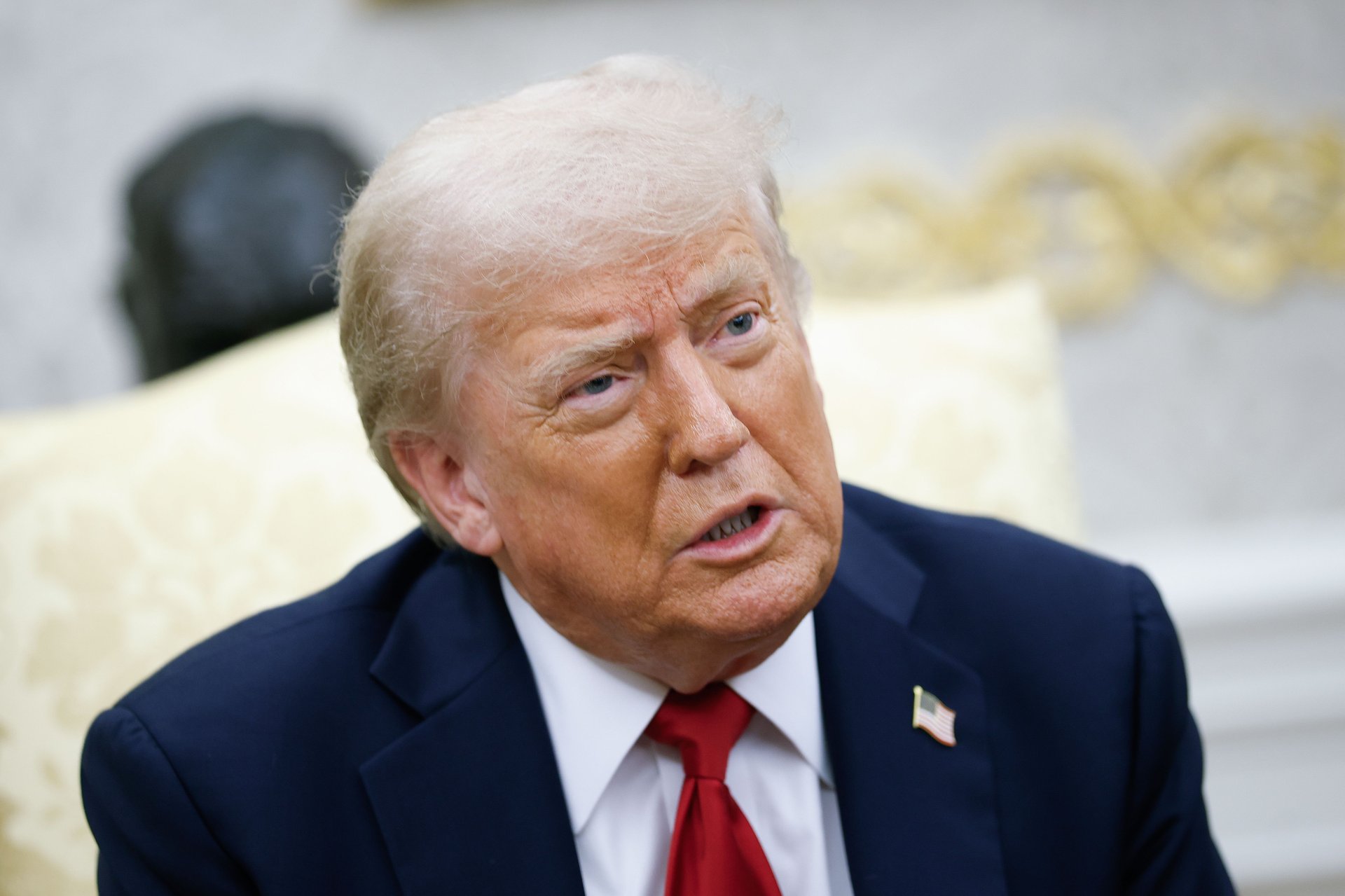Your 401(k) could soon include hedge funds and private equity
A new directive aims to give retirement savers access to high-risk, high-reward investments once reserved for the ultra-wealthy.

Kevin Dietsch/Getty Images
The Trump administration is reportedly preparing to issue an executive order that would open up 401(k) retirement plans to private equity and other alternative investments — a shift that could significantly change how Americans build their nest eggs.
Suggested Reading
The directive, expected to be finalized soon according to the Wall Street Journal, would instruct both the Department of Labor and the Securities and Exchange Commission to draft guidance opening the door for defined-contribution plans to incorporate private-market investments — including private equity, venture capital, hedge funds, and real estate — into their portfolios.
Related Content
The move represents a major win for the private equity industry, which has long viewed America’s $12.5 trillion 401(k) market as its next big opportunity. Historically, plan sponsors have steered clear of illiquid, higher-risk assets due to fiduciary liability concerns and regulatory ambiguity. That changed briefly during Trump’s first term, when the Department of Labor issued guidance supporting their inclusion — only to see it rolled back under the Biden administration.
Now, the industry is poised for a comeback. If implemented, the new directive would be the most significant step yet in bringing private markets to the average American worker. Proponents argue the change reflects a fundamental shift in the capital markets. The number of publicly traded U.S. companies has plummeted since the 1990s, while private equity assets have more than doubled in the last decade. To advocates, allowing access to those markets is about diversification, opportunity — and modernization.
But critics are likely to raise concerns. While private equity may offer the potential for higher returns, it also brings steeper fees, greater opacity, and far less liquidity. And in an era of heightened scrutiny over retirement plan performance, plan administrators could face a new wave of legal risk if investments go sideways.
Whether this will usher in a golden age for retirement portfolios — or a new era of legal and financial headaches — remains to be seen.
